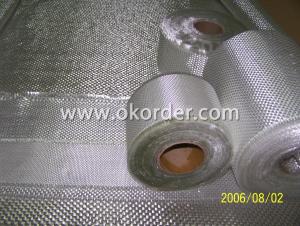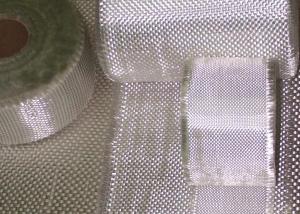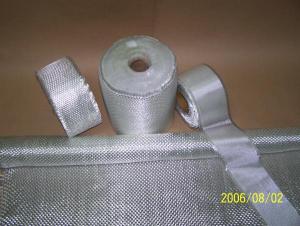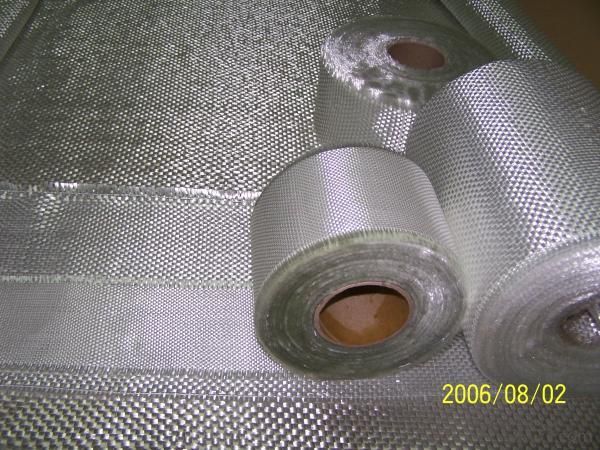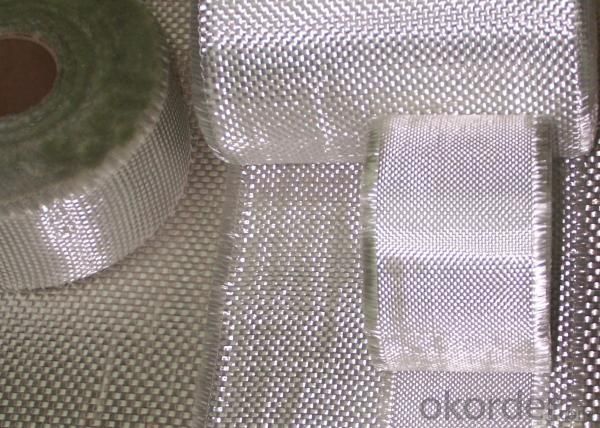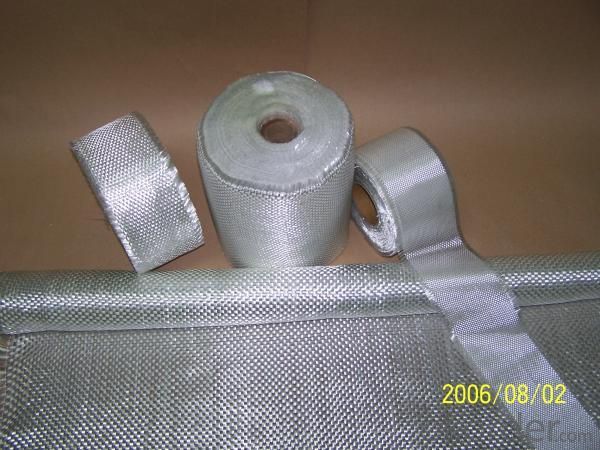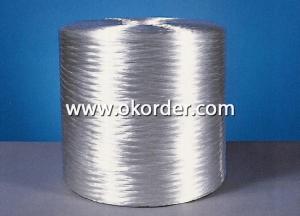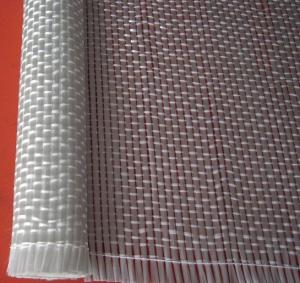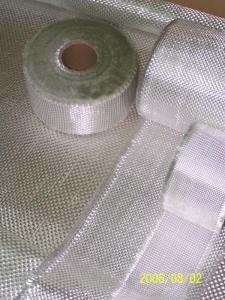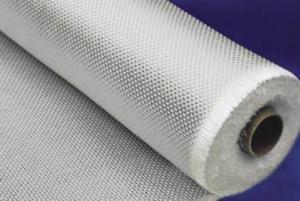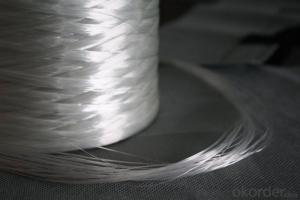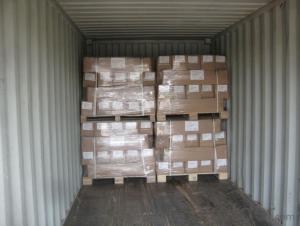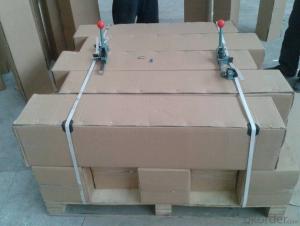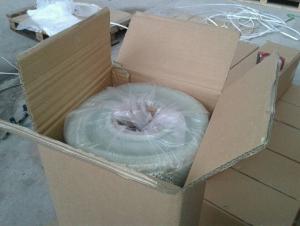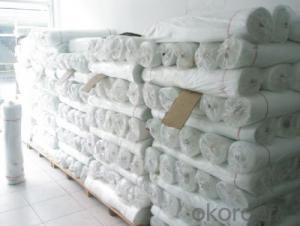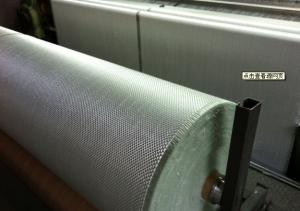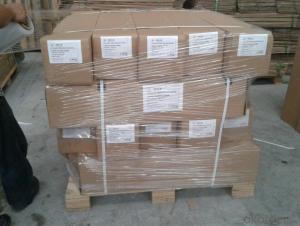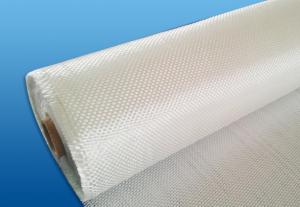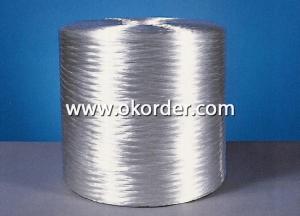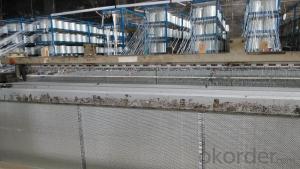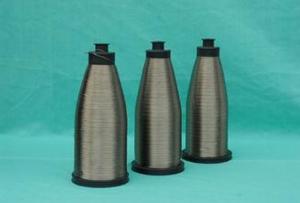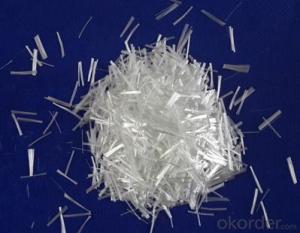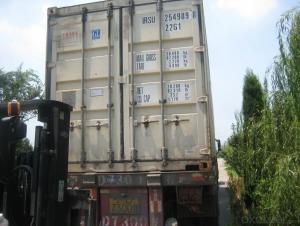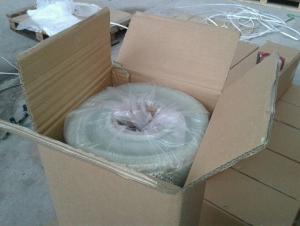E-Glass Fiber Woven Roving
- Loading Port:
- China Main Port
- Payment Terms:
- TT or L/C
- Min Order Qty:
- 5000KG kg
- Supply Capability:
- 500000KG kg/month
OKorder Service Pledge
OKorder Financial Service
You Might Also Like
Product Properties of E-Glass Fiber Woven Roving
Warp and weft rovings aligned in a parallel and flat manner, resulting in uniform tension
Densely aligned fibers, resulting in high dimensional stability and making handing easy
Good moldability, fast and complete wet in resins, resulting in high productivity
Good transparency and high strength of composite products
Glass fiber woven rovings are bidirectional fabric made by interweaving direct rovings and compatible with many resin like UP, vinyl ester, epoxy and phenolic resin.
It is a high-performance reinforcement widely used in hand lay-up and robot processes for the production of boats, vessels, plane and automotive parts, furniture and sports facilities
Package of E-Glass Fiber Woven Roving
Woven roving are wounded onto a paper tube which has an inside diameter of 89mm, and the roll has a diameter of 260mm. The roll is wrapped up with plastic film, and then packed in a cardboard box or wrapped up with kraft paper. The rolls are to be horizontally placed. For transporation the rolls can be loaded into a container directly or on pallets.
Storage of E-Glass Fiber Woven Roving
Unless otherwise specified, fiberglass products should be stored in a dry, cool and rain-proof area. It is recommended that the room temperature and humidity should be always maintained at 15℃-35℃ and 35%-65% respectively.
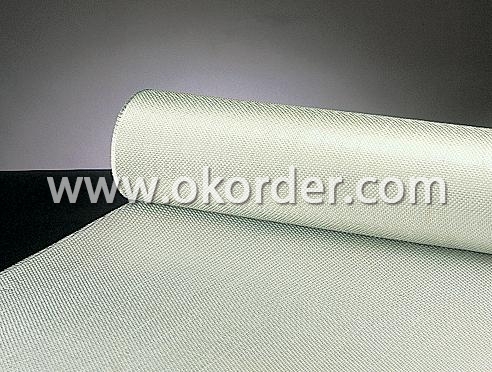
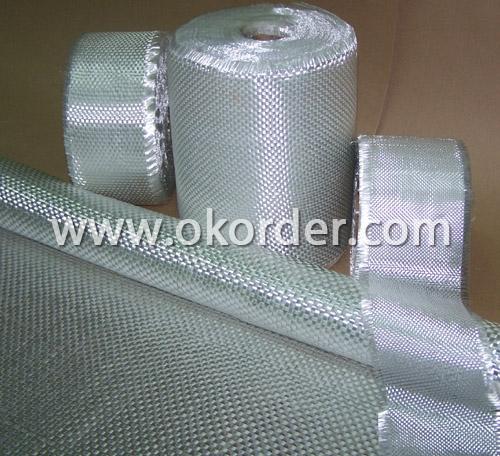
- Q: Can glass fiber be used for cement components
- Glass fiber is used as reinforced component is good. It features with weather resistance, acidproof and alkali resistant.
- Q: What can fiber concrete do?
- What can fiber in the fiber concrete do? 1, Improve the toughness of concrete; 2, Improve the flexural capacity of concrete; 3, Effective control of concrete cracking; 4, Appropriately increase the compressive strength of concrete; 5, Improve the impact resistance of concrete
- Q: What is glass fiber for?
- Glass fiber is a kind of excellent inorganic non-metallic materials with a great variety. It has many advantages such as good insulation, strong heat resistance, good corrosion resistance and high mechanical strength, but its disadvantage is brittle and poor wear resistance. It uses glass ball or waste glass as raw materials and is formed by high temperature melting, wire drawing, winding and weaving. The filament diameter is from several microns to over twenty micron which is equal to 1/20-1/5 of a hair with each bundle is formed by hundreds or even thousands of monofilament. Glass fiber is often used as the reinforced material in the composite material, electrical insulating materials and heat or thermal insulation materials. It is widely used in national economy field such as circuit board. Twistless roving is composed of parallel raw silk or parallel filaments. According to glass composition, twistless roving glass can be divided into good or better resin permeability. alkali free glass twistless roving and medium alkali glass twistless roving The diameter of glass fiber used in the production of glass roving is from 12 to 23 μm . The number of twistless roving is from 150 to 9600 (tex). Twistless roving can be directly used for producing some composite material with high content of glass?fiber. (6) In the preform process, twistless roving is widely used; Twistless roving has a good property of degradation and each bundle fibers is formed by hundreds or even thousands of monofilament. Twistless roving used for pultrusion can be formed by combined multiple strands or twistless roving. The diameter of glass fiber used in the production of glass roving is from 12 to 23 μm .
- Q: What are the advantages of the glass?reinforced?plastics antenna? What is the difference between an ordinary antenna and a glass?reinforced?plastics antenna?
- High gain
- Q: What materials are used to the special grid plate of the carwash?
- We call it geogrids with the frame made by the glass fiber twistless roving. The matrix is mainly unsaturated polyester resin
- Q: What does 3240 belongs to?
- 240 epoxy resin is used to produce glass fiber cloth by high temperature and pressure. It features with heat resistance and moisture resistivity. It is often used as components and parts for electrical appliance and electron with its model is 3240. It has high mechanical properties under medium temperature. Heat resistant grade is F (155 degrees). It is suitable for machinery with stable electrical performance at high temperature.
- Q: The difference between glass fiber plain cloth and glass fiber woven roving.
- According to the weight and width, there are many models including 200 g, 400 g, 600 g and 800 g. The width of 900, 1000, 1270 and 1400 are commonly used. The width is from a few centimeters to 3 meters and the weight is from 60 to 800.
1. Manufacturer Overview
| Location | Shanghai,China |
| Year Established | 2006 |
| Annual Output Value | Above US$20 Million |
| Main Markets | Mid East;Western Europe;North America:South American |
| Company Certifications |
2. Manufacturer Certificates
| a) Certification Name | |
| Range | |
| Reference | |
| Validity Period |
3. Manufacturer Capability
| a) Trade Capacity | |
| Nearest Port | Shanghai |
| Export Percentage | 70% |
| No.of Employees in Trade Department | 200 People |
| Language Spoken: | English;Chinese |
| b) Factory Information | |
| Factory Size: | Above 400,000 square meters |
| No. of Production Lines | Above 15 |
| Contract Manufacturing | Average |
| Product Price Range | OEM Service Offered;Design Service Offered |
Send your message to us
E-Glass Fiber Woven Roving
- Loading Port:
- China Main Port
- Payment Terms:
- TT or L/C
- Min Order Qty:
- 5000KG kg
- Supply Capability:
- 500000KG kg/month
OKorder Service Pledge
OKorder Financial Service
Similar products
Hot products
Hot Searches
Related keywords
